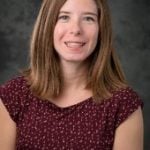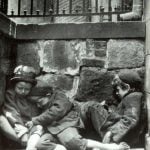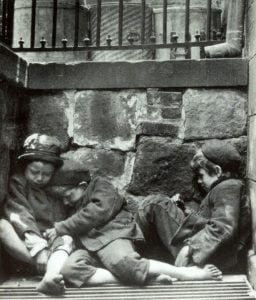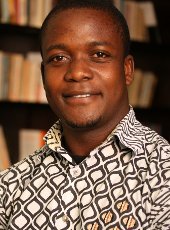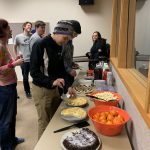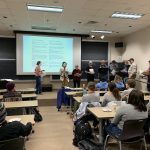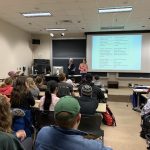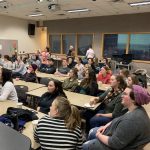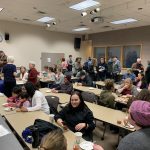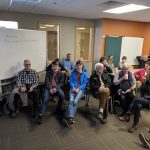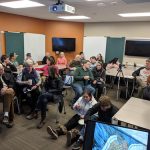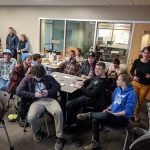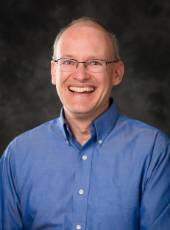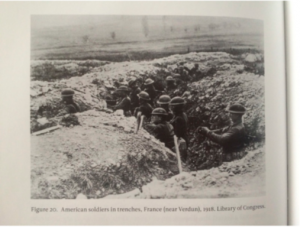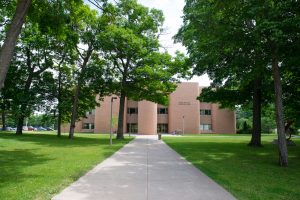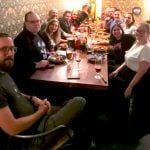
Over the summer of 2019, RTC PhD Candidate, Lyz Renshaw, participated in the Higher Education Video Game Alliance (HEVGA) Europe Games Research Summer School held in The University of Skövde, Sweden from August 21 to 23. The school was attended by PhD students and graduate students who are working in areas connected to digital games — Renshaw’s dissertation falls within this research area.
Lyz shared her experience:
The experience was great, working alongside other graduate students from schools such as University of California Irvine, Wisconsin-Stout, IT Copenhagen and Uppsala University. We had speakers from all over Scandinavia attend, including scholars from University of Skovde, Uppsala, and Gothenburg. I was given the opportunity to present a chapter of my dissertation and receive feedback from senior researchers and peers, including a graduate student who works directly with many of the scholars I base my work on.
Outside of the intended goals of the program, it was also enlightening to see how higher education is different internationally, how curriculum is designed, courses run, expectations of graduate students.
I also left the program with a collaboration project in the works, taking a previous paper I had present at the e-sports conference at UCI last year (and at an RTC colloquium last year) and pairing up with a graduate student from that university who had seen my earlier work.
